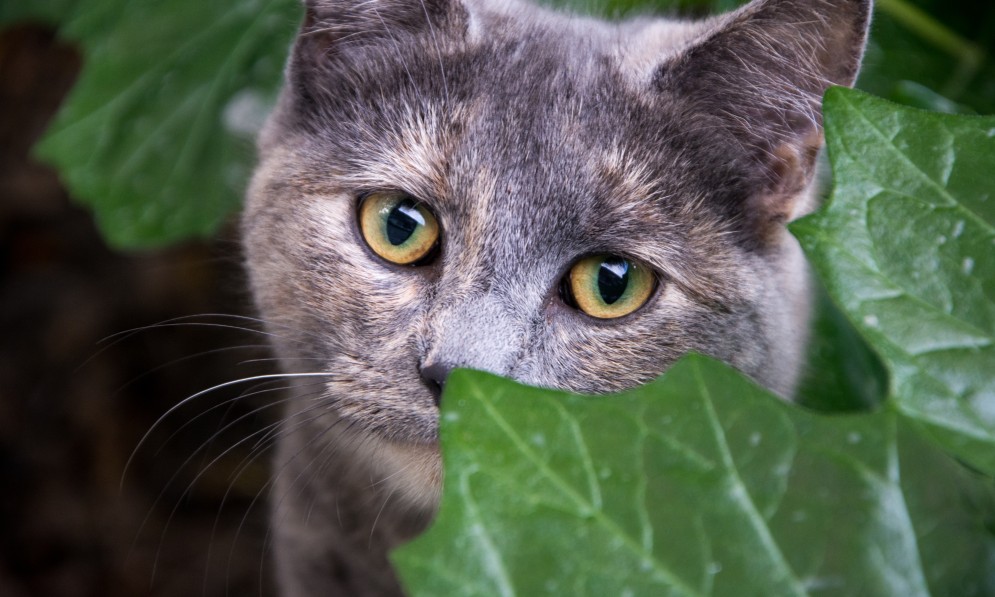Forest & Bird needs your help to get world-leading legislation over the line so we can manage pet cats for the first time in New Zealand’s history. By Amelia Geary
Forest & Bird magazine
A version of this story was first published in the Summer 2023 issue of Forest & Bird magazine.

This summer, we have the biggest opportunity in our lifetime to do something meaningful to protect our native wildlife and improve cat welfare in Aotearoa New Zealand.
No other country has a Cat Management Act that regulates cats nationally, and Aotearoa is tantalisingly close to becoming the first in the world to secure one. It would mandate microchipping, desexing, and registering all pet cats, making it much easier to manage stray and feral cats and stop them devastating local wildlife, especially native birds and lizards.
With your help, we can secure a win-win for our wildlife and cat welfare and make history by showing the world what we can do when we come together – conservationists, farmers, councils, and cat welfare advocates.
We can’t fail now, at the last hurdle. We need the new government to come to the party and introduce a national Cat Management Act.
On 2 August 2023, Parliament’s Environment Committee released its long-awaited report on a petition to mandate the registration and desexing of pet cats and kittens.
Forest & Bird, along with others, including our friends at the SPCA, presented in favour of the petition, saying a Cat Management Act would help local authorities manage cats as they do dogs.
The Environment Committee’s recommendation was this: “It recommends by majority to the government that legislation is developed to implement a nationwide cat management framework based on the principle that cats should be registered, desexed, and microchipped with appropriate exemptions.”
But what now? While cat control legislation is not controversial and is also supported by many councils, without public pressure, there is no impetus for the newly elected government to pick it up and run with it.
We need action so we can manage our cats more effectively. Current legislation isn’t fit for purpose, and councils need more powers to manage pet, stray, and feral cats.
We live in a country that loves cats. They are our most popular pets, and more than 1.2 million cats share homes with their humans, but only half (49%) are microchipped according to Companion Animals NZ.
There are about 196,000 stray cats abandoned by their owners (the actual number is likely to be far higher). While there is no national data on feral cat abundance in Aotearoa, it is widely accepted they number in the millions.
Cats prey on native birds, lizards, and insects and can devastate local populations. Feral cats were responsible for the loss of Lyall’s wren on Stephens Island, Marlborough Sounds, in 1895.
Forest & Bird has been raising awareness of the “cat menace” since its inception. In fact, founder Val Sanderson argued for cat control legislation in 1934 and compulsory cat registration in 1942.
Ours was not the lone voice in raising cat concerns before World War II. The SPCA called for compulsory registration at a meeting of its Wellington Branch in November 1938.
And now, in Forest & Bird’s centennial year, we’re the closest we’ve ever been to securing meaningful action from the government. We’ve had a Dog Control Act since 1996, by the way.
How can you help? The best thing you can do is talk to your new MP, talk to your local council, talk to your community. The more people that pass the message to the government, the better.
We want to end the suffering of hungry stray and feral cats and protect our wildlife. The time for a Cat Management Act is now.
Feral cat kills fernbird chicks
The photo below shows three mātātā South Island fernbird chicks safe in their nest on 13 September. They were being monitored by Forest & Bird’s Tautuku restoration project staff and were on the cusp of fledging.
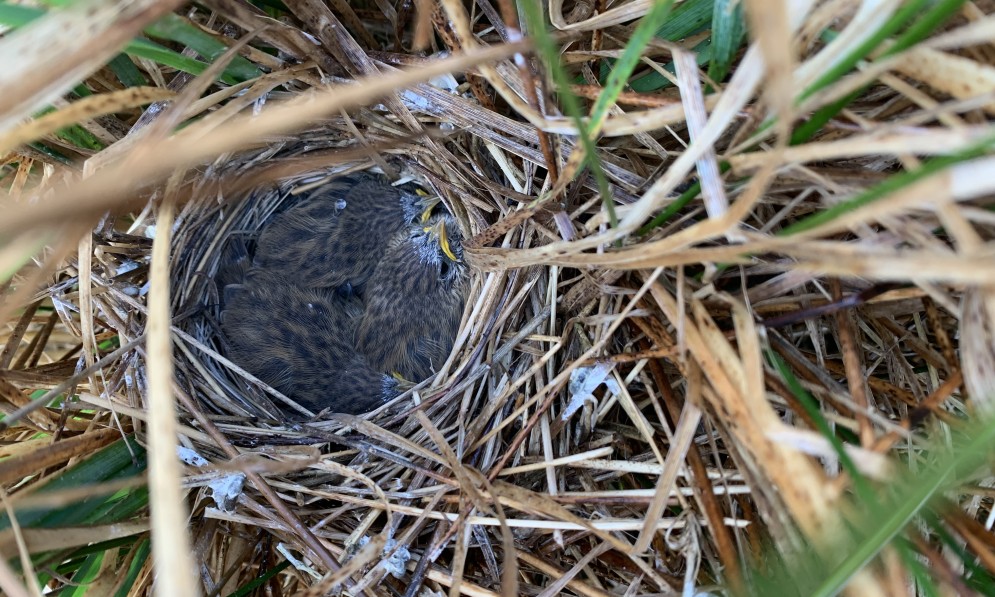
The three doomed mātākā South Island fernbird chicks. Credit Petra Simpson
Sadly, three days later, a feral cat killed all three chicks in the nest. Forest & Bird’s Tautuku project manager Francesca Cunninghame takes up the story.
“We have it on trail camera. The adult fernbirds return to roost with the chicks near the nest, which is concealed among juncus rush,” she said.
“An hour later, a black cat arrives, sniffs around, moves towards the nest, sits still, pounces, and you can see its head moving as it eats the chicks.
“The two adults escape and return the next morning. You could see they were back searching for their young. It was heart-breaking.
“This shows why feral cats are a real problem that needs addressing. This is an impressively calculating predator, just in the wrong place.”
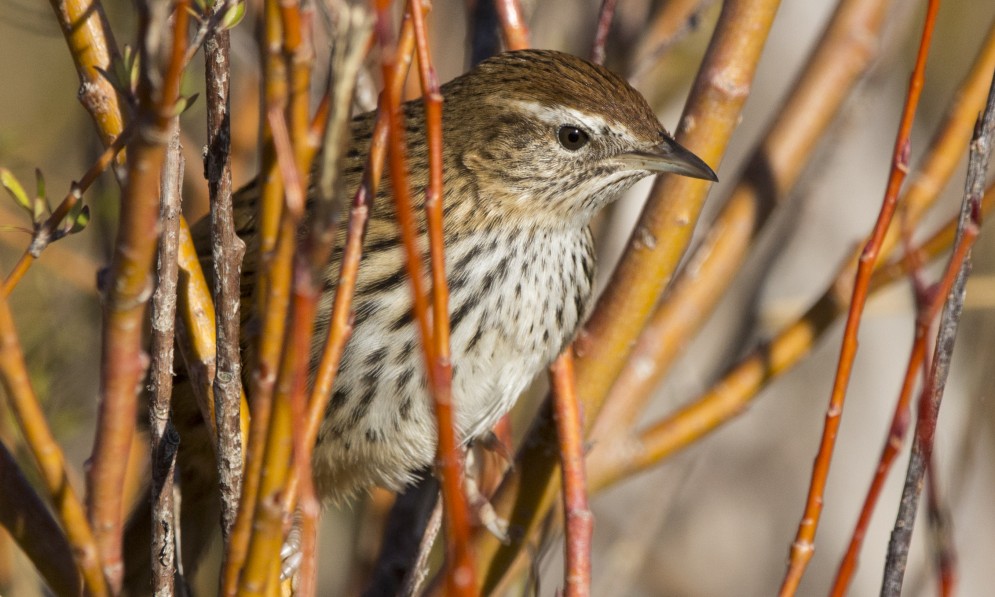
Mātākā South Island fernbird. Credit Oscar Thomas
New Zealand is one of the few countries in the world that recognises feral cats as a pest, but currently they are not on Predator Free NZ’s official list of species for eradication.
But Chris Luxon and Chris Hipkins both committed to eradicating feral cats during the second leaders’ debate on 28 September.
Forest & Bird will continue to advocate for feral cats to be added to the list for eradication.
Cat cam tales
Greg Billington shares his experiences with cats in scrubby bush near his home at Waikawa, near Picton, South Island.
Greg set up a “cat cam” so he could see what was killing the local wildlife he was trying to protect and found a number of different feral cats wandering through the area.
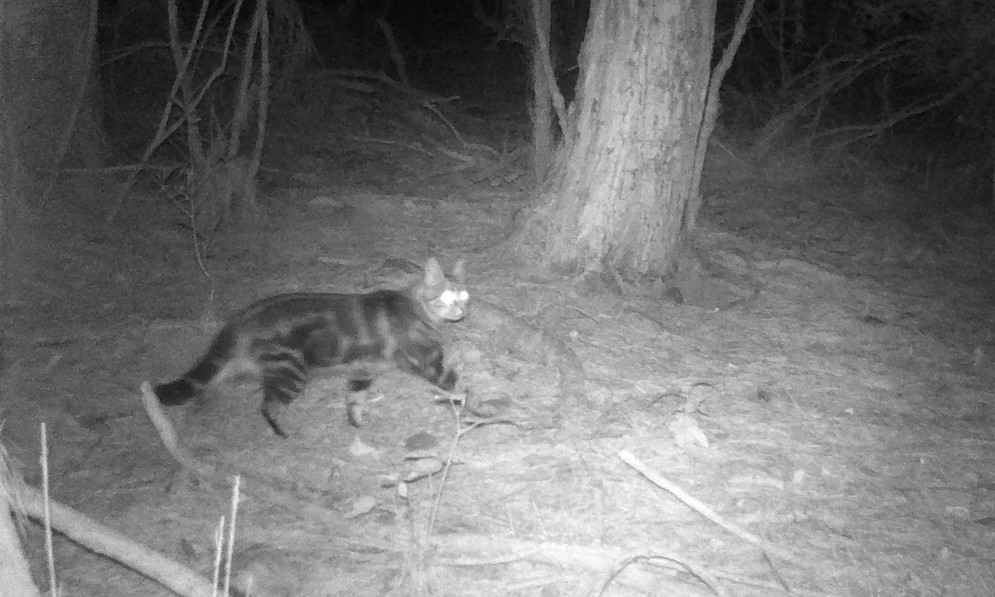
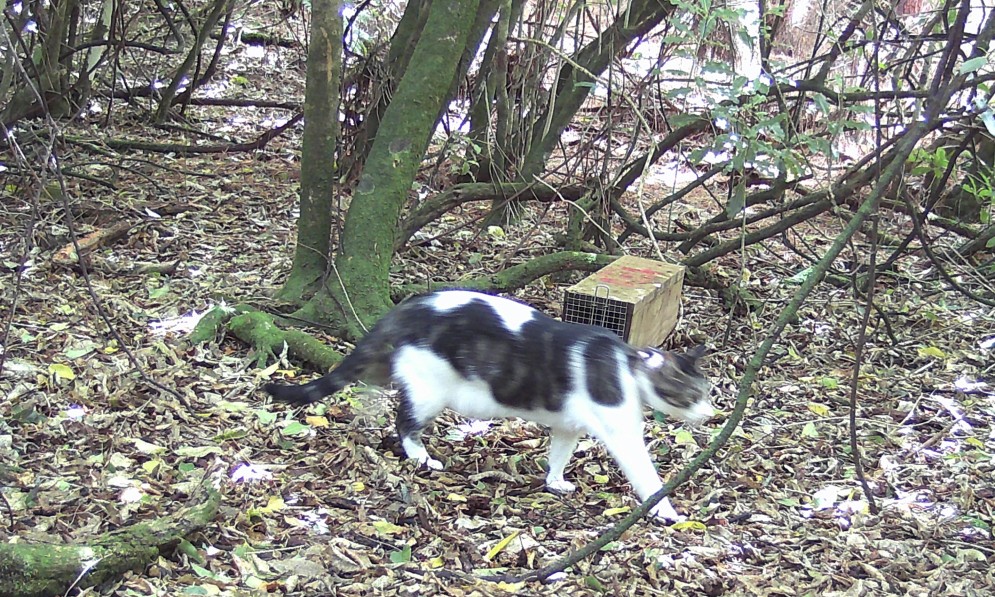
After five feral cats were removed in 2020, birdlife bounced back, with pīwakawaka, riroriro, weka, and quail present in substantial numbers.
But then, says Greg, domestic cats moved in to occupy the niche filled by the departed ferals, and the local bird population virtually vanished over three weeks and never recovered.
He says it’s quite easy to distinguish a domestic cat from a feral if one happens to be caught in a trap.
Greg strongly supports a Cat Management Act and says compulsory microchipping would help identify any cats caught in his traps and allow them to be reunited with their owners.
How can you help?
- Please support Forest & Bird’s predator free advocacy, including our Cat Management Act campaign, by making a donation today. Go to www.forestandbird.org.nz/support-predator-free
- Add your voice by writing to your new MP urging them to support a comprehensive Cat Management Act. You can find a template letter at predatorfreenz.org/cats/ .

